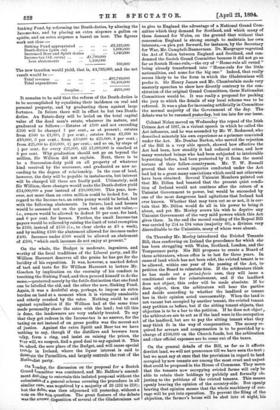Colonel Nolan moved on Wednesday the repeal of the Irish
Crimes Act of 1887, in a violent speech in which he called the Act infamous, and he was seconded by Mr. W. Redmond, who described minutely his own experience as a prisoner convicted under the Act. Mr. Dunbar Barton, who moved the rejection. of the Bill in a very able speech, showed how effective the• Act had been, how steadily it had reduced crime, and how many wretched beings who had been subjected to intolerable boycotting before, had been protected by it from the moral torture of their fellow-countrymen. Mr. T. W. Russell proved that the secret inquiries conducted under the Act had led to a great many convictions which could not otherwise have been obtained. Several Unionist Members pointed out that Mr. Dillon had boasted that the present quiet condi. tion of Ireland would not continue after the return of a Unionist Government to power, but would be succeeded by one of the most dangerous land agitations that Ireland had ever known. Whether that may turn out so or not, it is cer- tain that Mr. Dillon would do all in his power to bring it about, and yet Mr. Morley avows his wish to deprive any Unionist Government of the very mild powers which this Act gives them. In the end the second reading of the Repeal Bill was carried by 254 to 194 votes (majority 60), a division very discreditable to the Unionists, many of whom were absent.


































 Previous page
Previous page